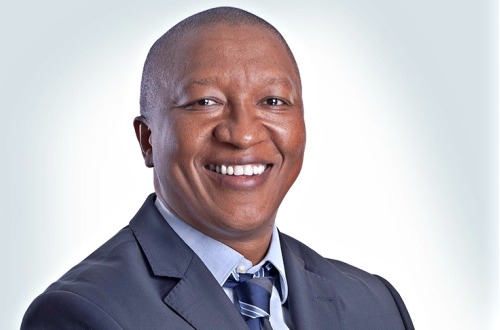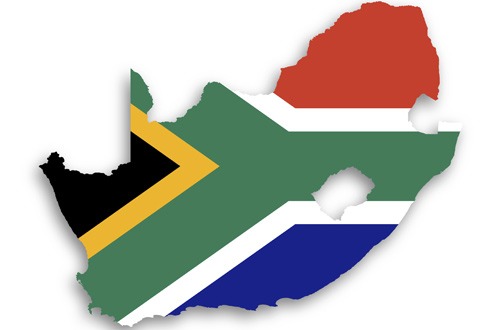 National Minimum Wage Applies To All Employees – SA Labour Department
National Minimum Wage Applies To All Employees – SA Labour Department
The National Minimum Wage applies to all workers and no employer can pay workers below that level, a senior South African department of labour official told union representatives and other stakeholders at a meeting at uMhlathuze municipality in Richards Bay, KwaZulu-Natal, on Thursday.
“The National Minimum Wage will be the floor level below which no worker should be paid and cannot be varied by contract, collective agreement or law,” director of employment standard, Stephen Rathai, said.
Rathai was addressing unions and other stakeholders on the upcoming National Minimum Wage which will be implemented in May 2018, as will amendments to the Basic Conditions of Employment Act (BCEA) and the Labour Relations Act (LRA).
“The National Minimum Wage constitutes a term of a worker’s contract except to the extent that the contract provides for a favourable wage and the employer cannot unilaterally alter the hours of work or other conditions of employment in implementing the National Minimum Wage,” he said.
Rathai said of the R20 per hour minimum wage level, farm/forestry workers will be paid R18, and domestic workers will be paid R15 from May 2018.
Rathai said that amendments to the basic conditions of employment act deal with the monitoring and enforcement of the NMW including dispute resolutions thereof.
“The amendments include the scope of the Department’s inspectorate in terms of monitoring the implementation of the NMW including securing undertakings, enforcement of NMW in sectors with collective agreements including bargaining councils and the referral of noncompliance to the [Commission for Conciliation, Mediation and Arbitration] CCMA.”
Meanwhile, Ian Macun, the chief director of employment standards said the amendments to the Labour Relations Act deal with the state of the labour relations environment with respect to violent and protracted strikes.
Macun said that one of the amendments to the LRA is that a picket will be prohibited unless picketing rules are in place. (via African News Agency)
Flagship Training Programme To Provide Women In Logistics And Transport With Internationally Recognised Qualification
30 women in the transport and logistics industries have been enrolled as student members of the Chartered Institute of Logistics and Transport: South Africa (CILTSA), in a first-ever candidacy programme.
Funded by the Transport Education and Training Authority (TETA), the 30 employed women will be trained in the international Certificate in Logistics and Transport CILT qualification, which will also lead to a professional, internationally-recognised designation for the successful candidates.
“We know there is a huge skills gap in transport and logistics – it is still very much male-dominated,” said CILTSA President Elvin Harris. “We need more women professionals. The CILTSA Candidacy programme is the start of something really good and long-term. The responsibility is on all of us to make it work.”
“The beauty of this CILT qualification is that it is international,” continued Harris. “The Institute has a presence in over 33 countries, which means that the candidates will have a qualification that is portable across the globe. The programme is both theoretical and practical – something essential in today’s world.”
“We were extremely impressed by the standard of the entrants. Their humour, their hunger for knowledge, their passion – we were totally amazed,” said Charles Dey FCILT, the institute’s professional development champion and one of the Candidacy Selection Panel members. “This is the beginning of an exciting initiative that CILTSA hopes to take a very long way.”
“This is the first project of its kind – and the only one within TETA,” explained Ingrid du Buisson, executive officer of the Freight Handling Chamber at the Transport Education and Training Authority (TETA). The concept of a candidacy programme was presented by the Department of Higher Education and Training (DHET) a year ago.
“‘Candidacy’ means the structured work experience component part of an occupational qualification as determined by the relevant professional body and may follow the completion of an academic qualification required for access to the assessment for the issuing of a professional designation.”
“TETA is excited to be a part of this ground-breaking initiative and is very much a part of this journey,” she continued. “This flagship project is significant – it is the start of the much-needed recognition and professionalisation of the supply chain industry.” (via Bizcommunity)
Fitch Is Giving SA A Chance To Address Issues – National Treasury
Fitch ratings agency’s decision on Thursday, to maintain South Africa’s long-term foreign and local currency debt rating at BB+ has given the country a chance to address issues in a manner that will see an upward revision in its ratings, National Treasury said.
It said the reprieve could not see South Africa become complacent, and it should remembered that Fitch’s decision in April to downgrade the country to ‘junk’ status contributed to a recession, a decrease in revenue and higher borrowing costs.
“Government and the country collectively cannot afford to become complacent about these rising risk exposures.”
Fitch downgraded South Africa weeks after the firing of Pravin Gordhan as finance minister.
On Thursday, it also opted to maintain the country’s outlook as “stable”, but the treasury warned that South Africa needed to regain investment grade status or every citizen would pay the price.
“While Fitch’s ratings imply that South Africa is still in line with other emerging markets in the same ratings category, the implications are huge for the country. A ‘junk status’ ratings has implications for the economy, state debt costs, state owned companies and the ordinary man on the street,” it said.
“By not downgrading the country further, Fitch is providing South Africa with an opportunity to address issues that can lead to an upward revision to the rating.”
S&P Global and Moody’s were due to give their decisions on South Africa’s investment status on Friday. (via African News Agency)


